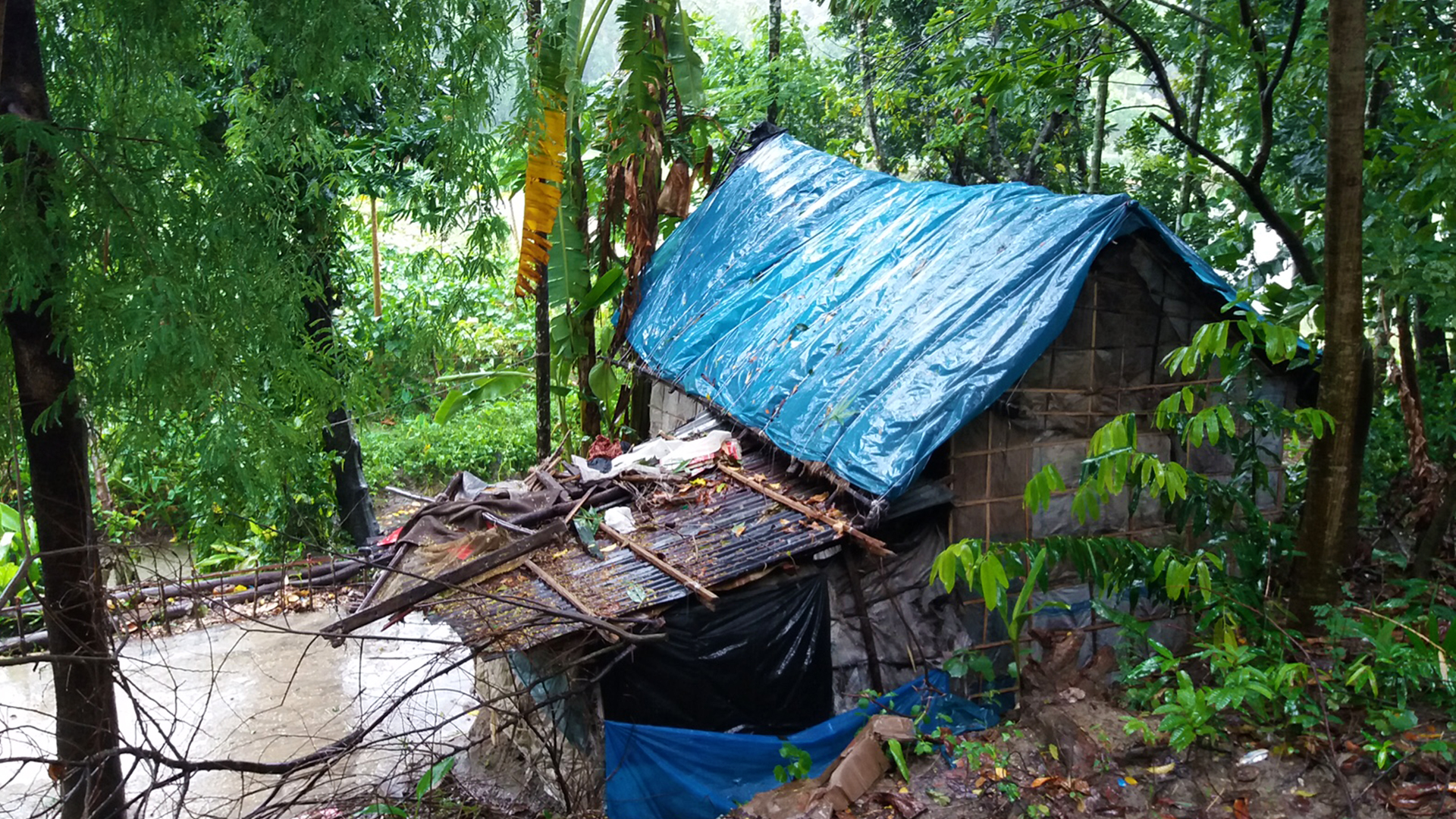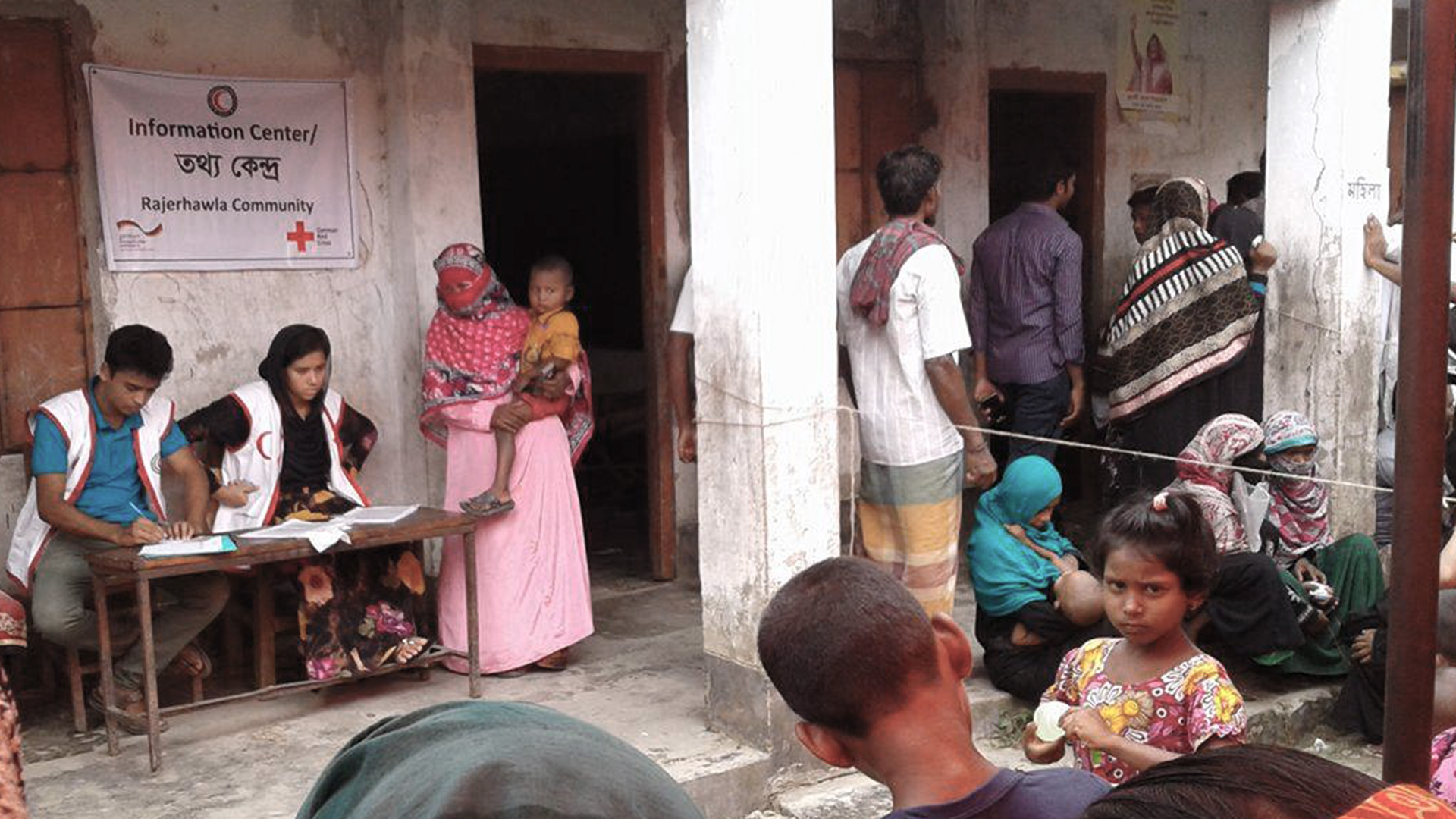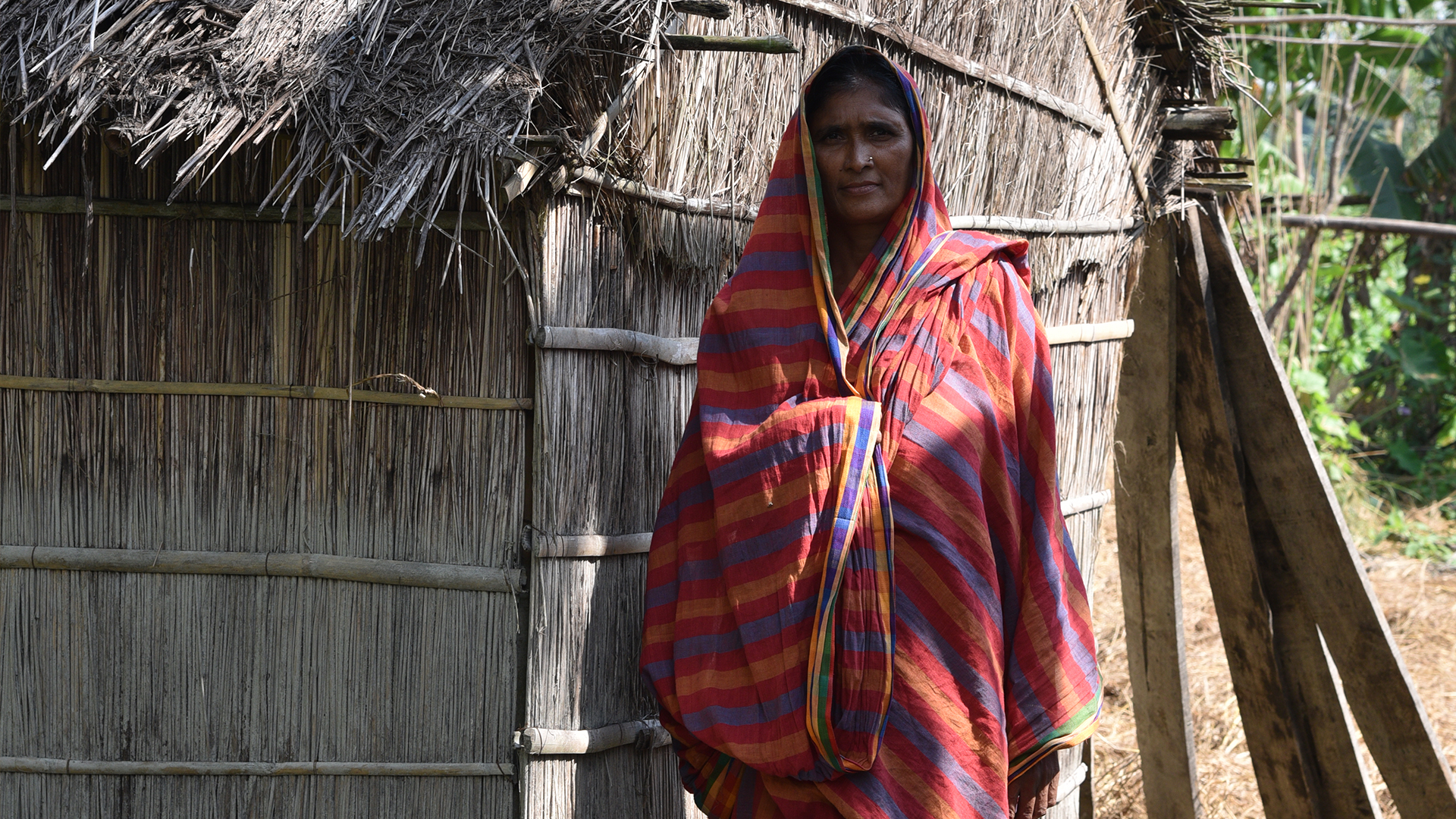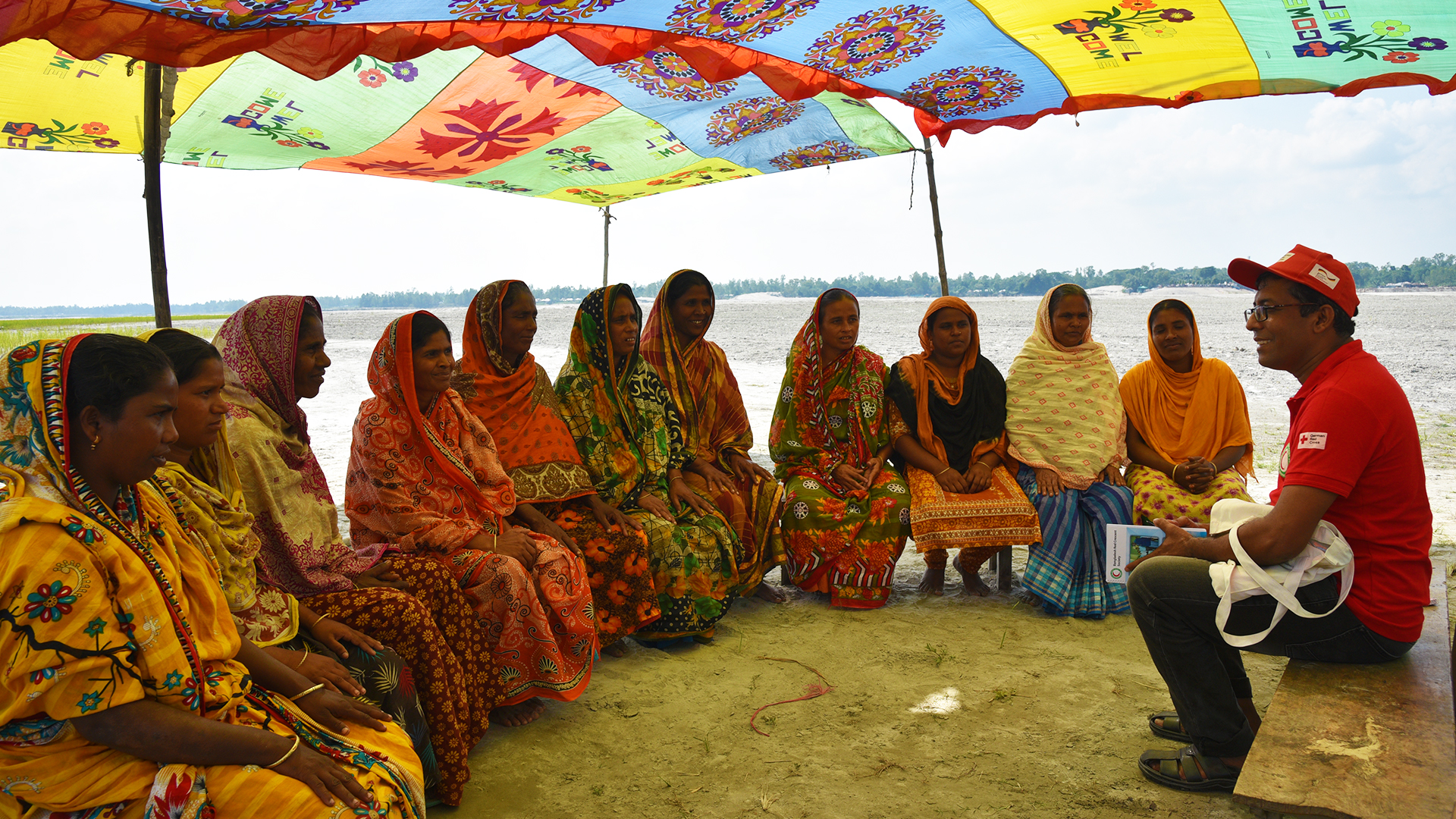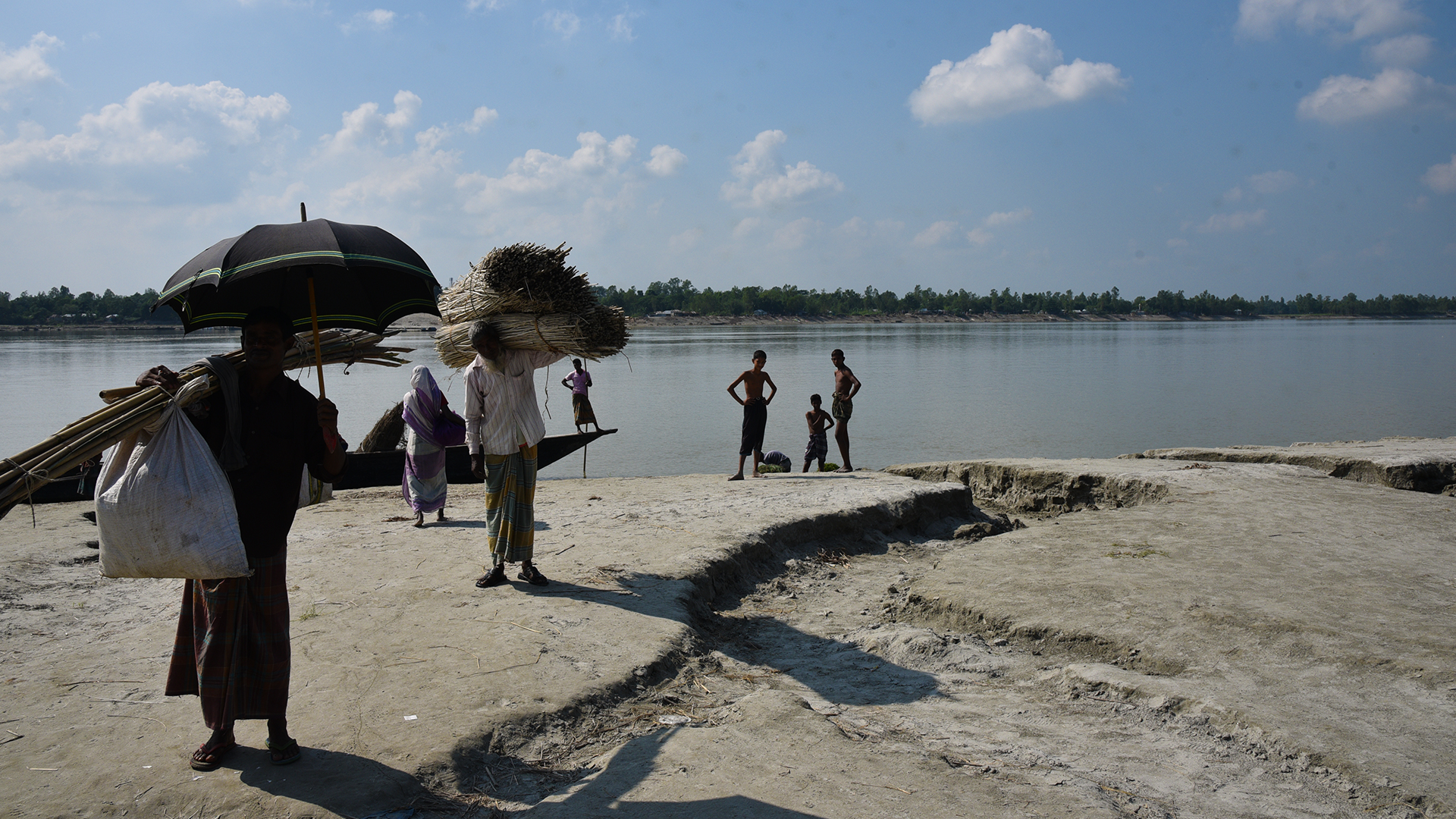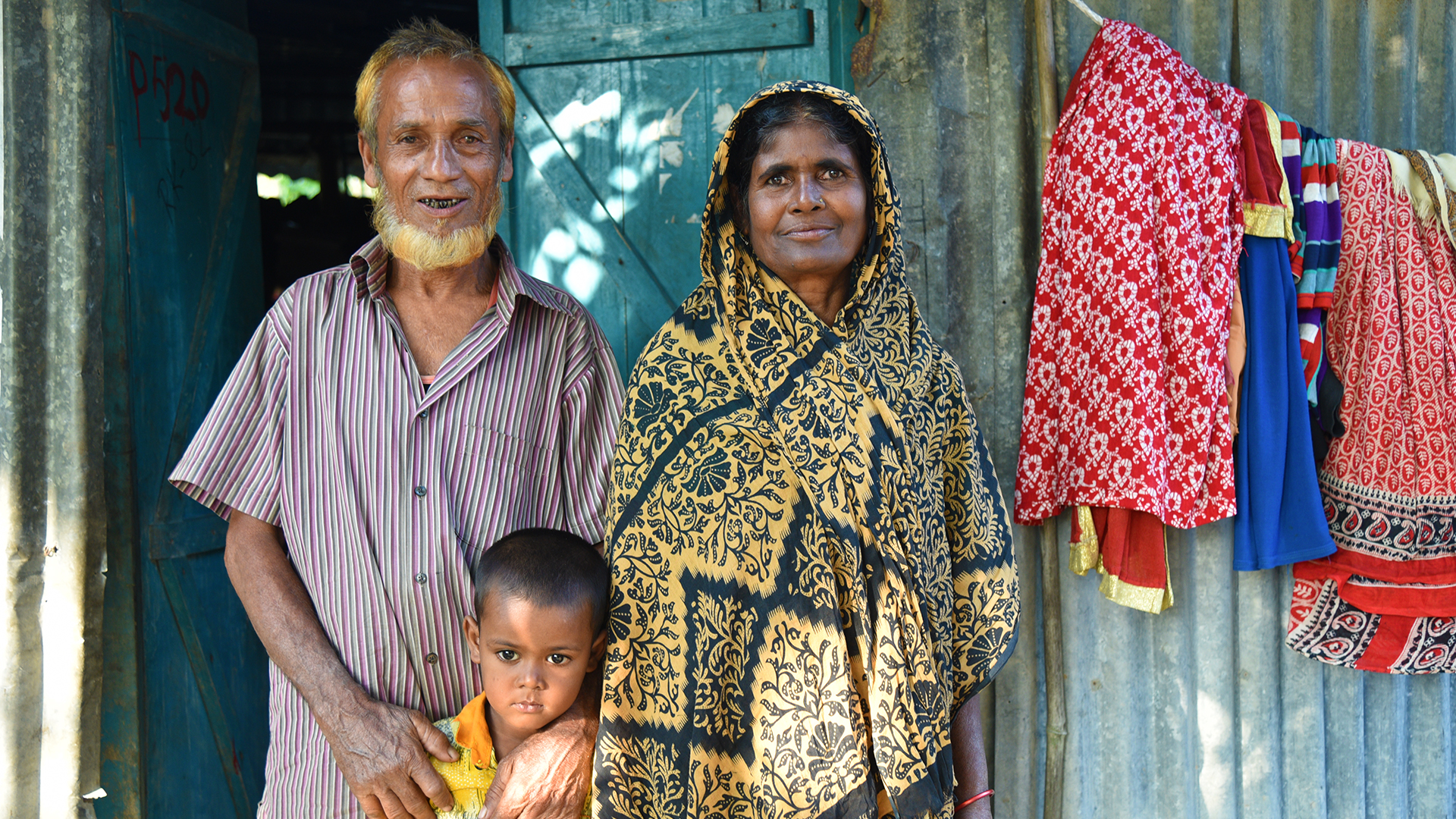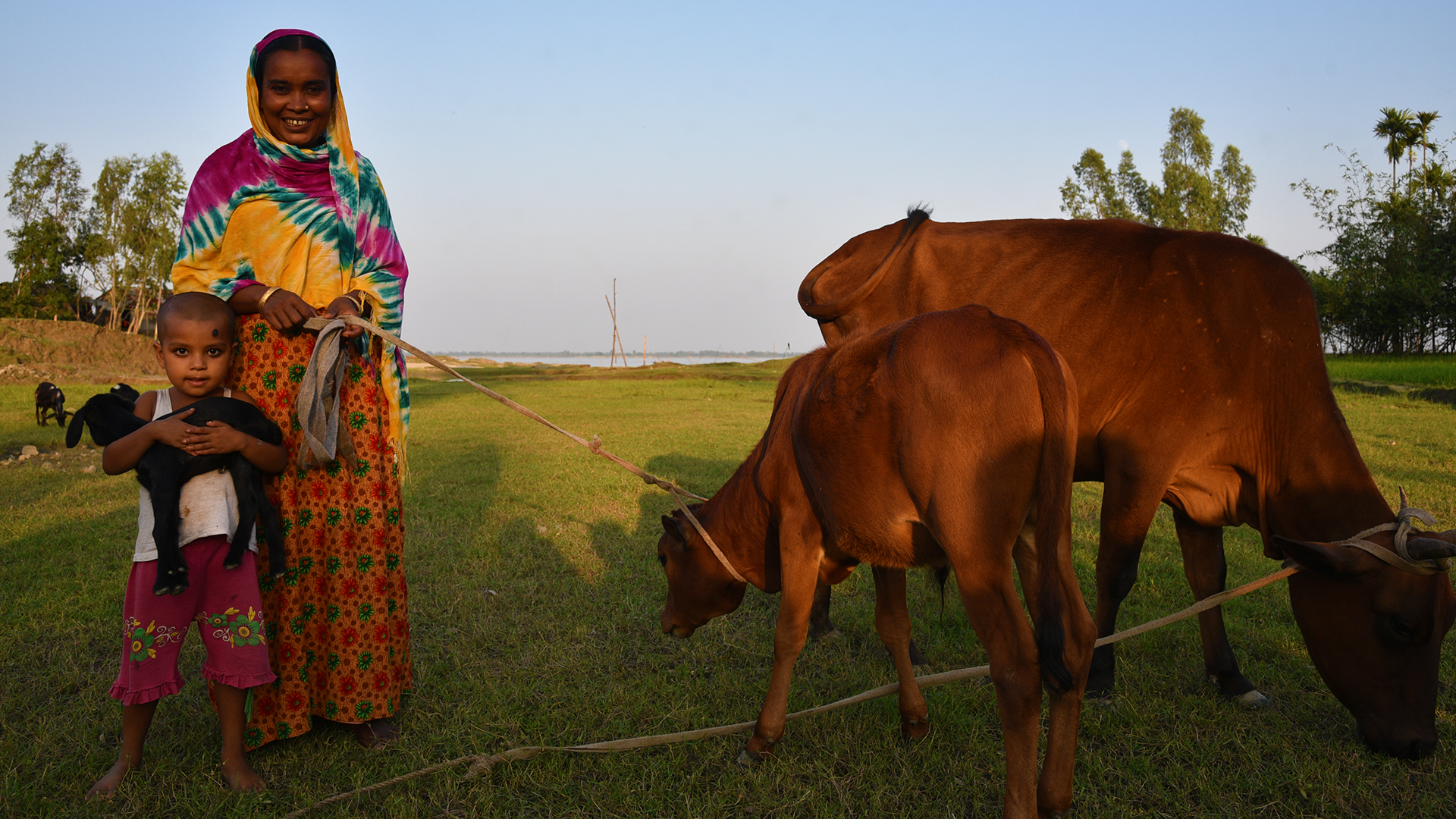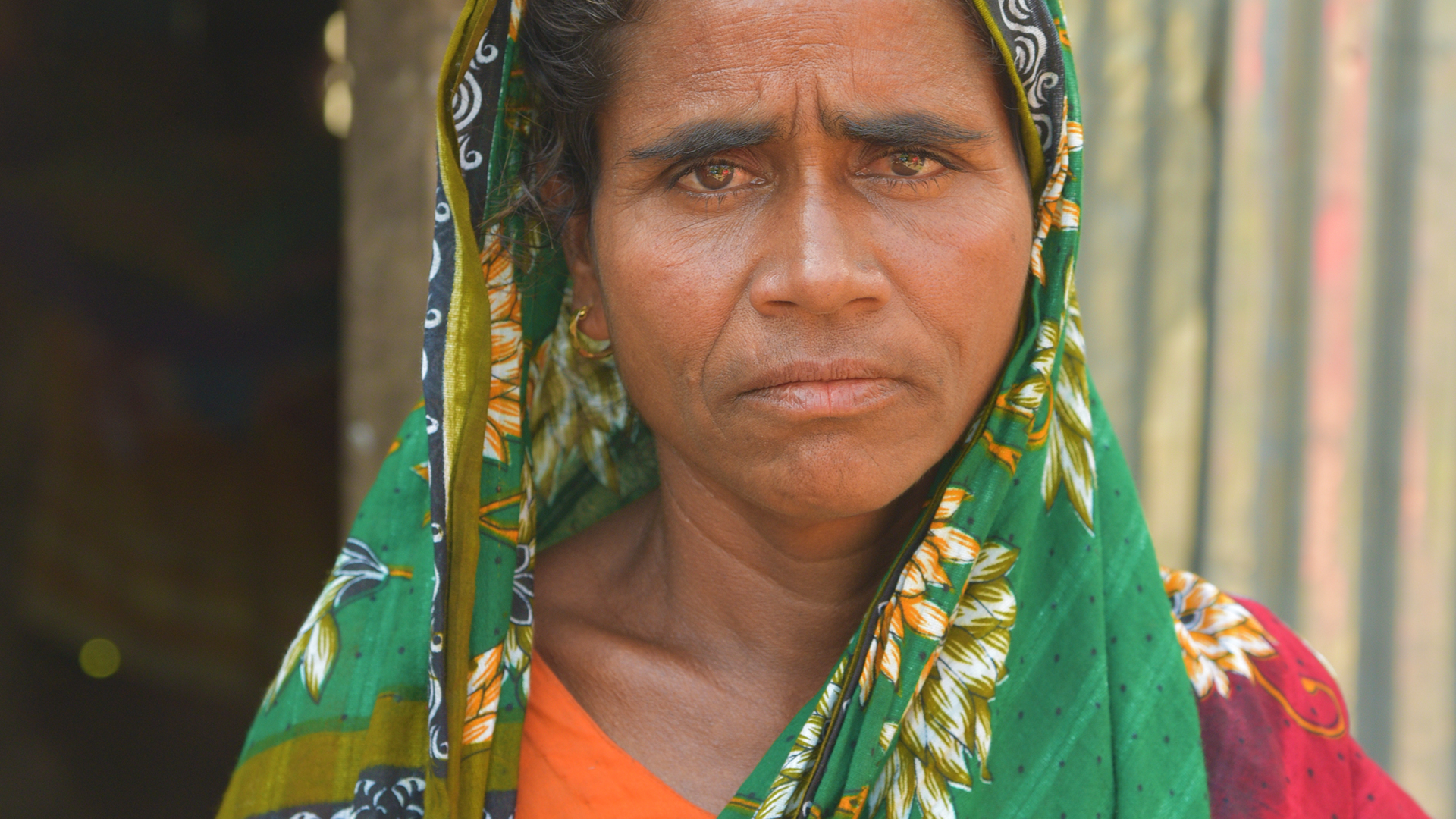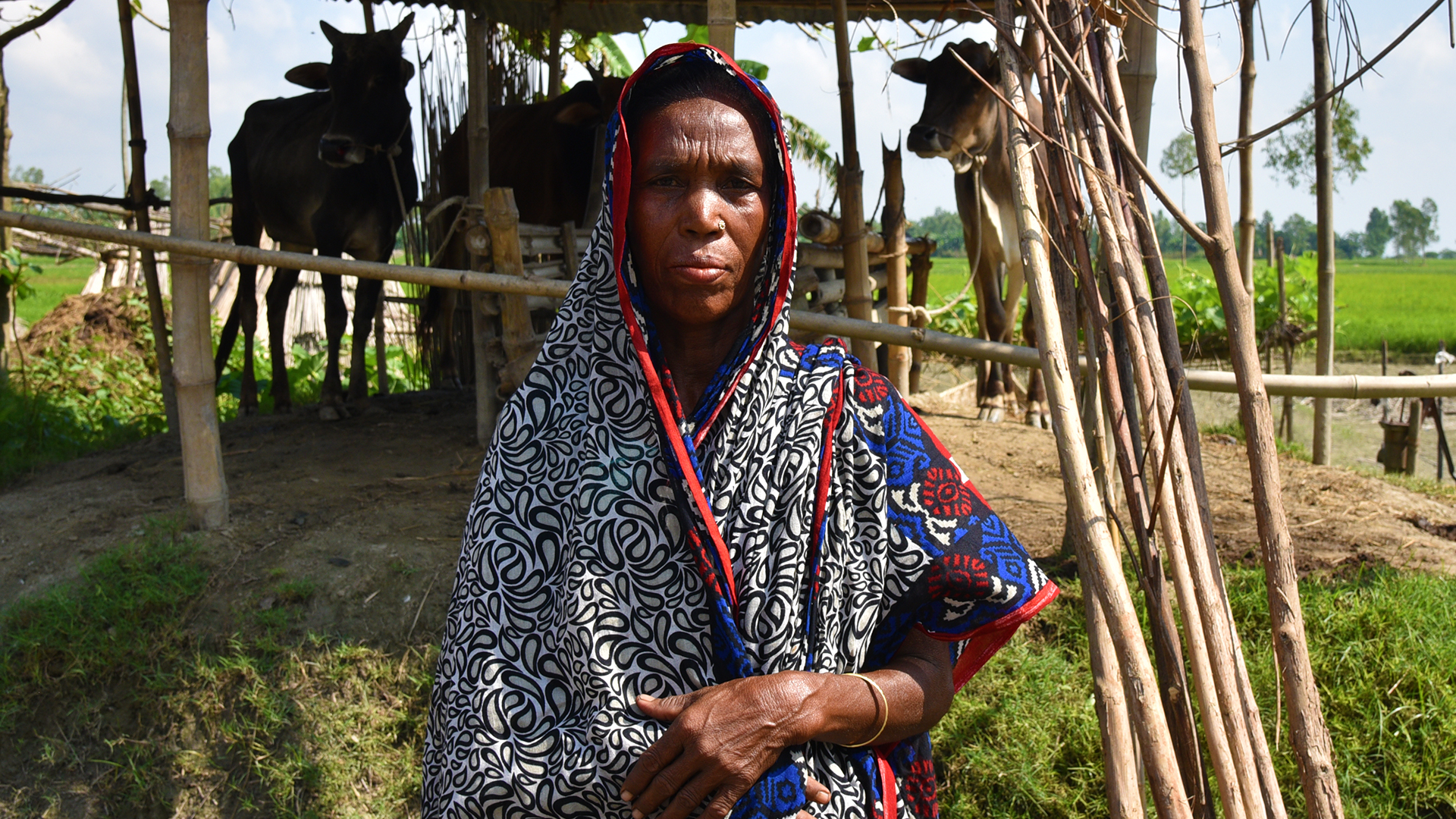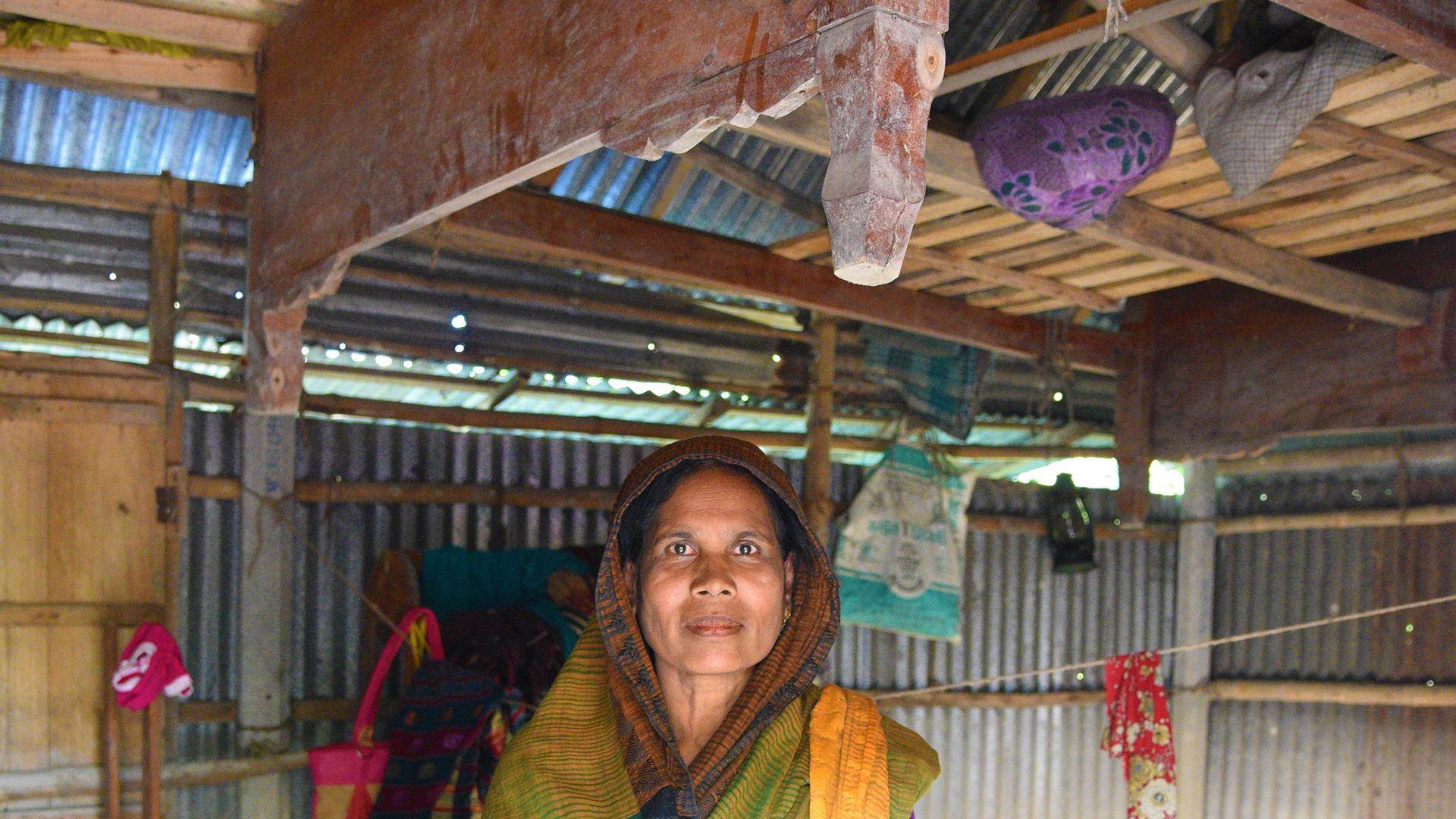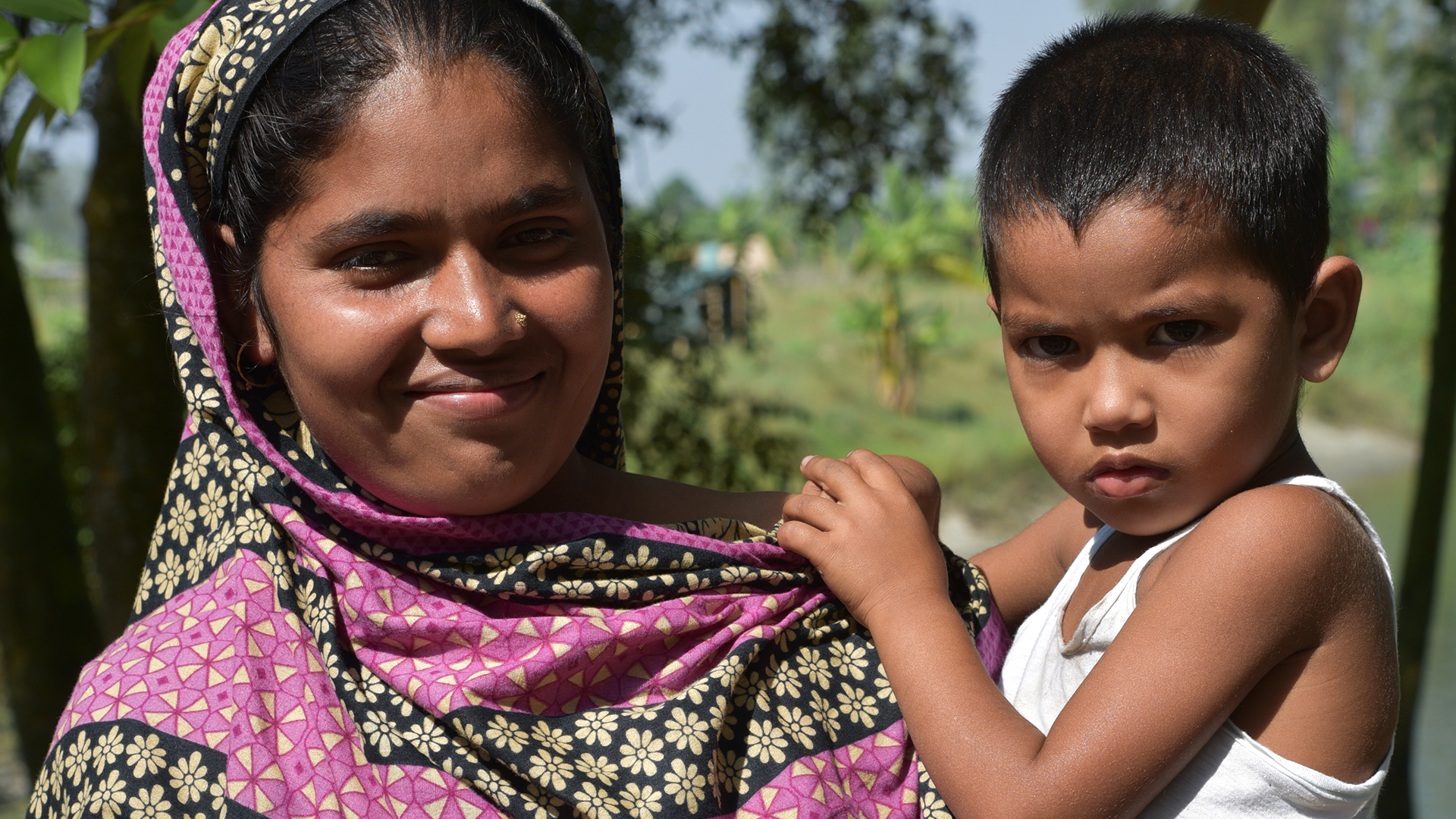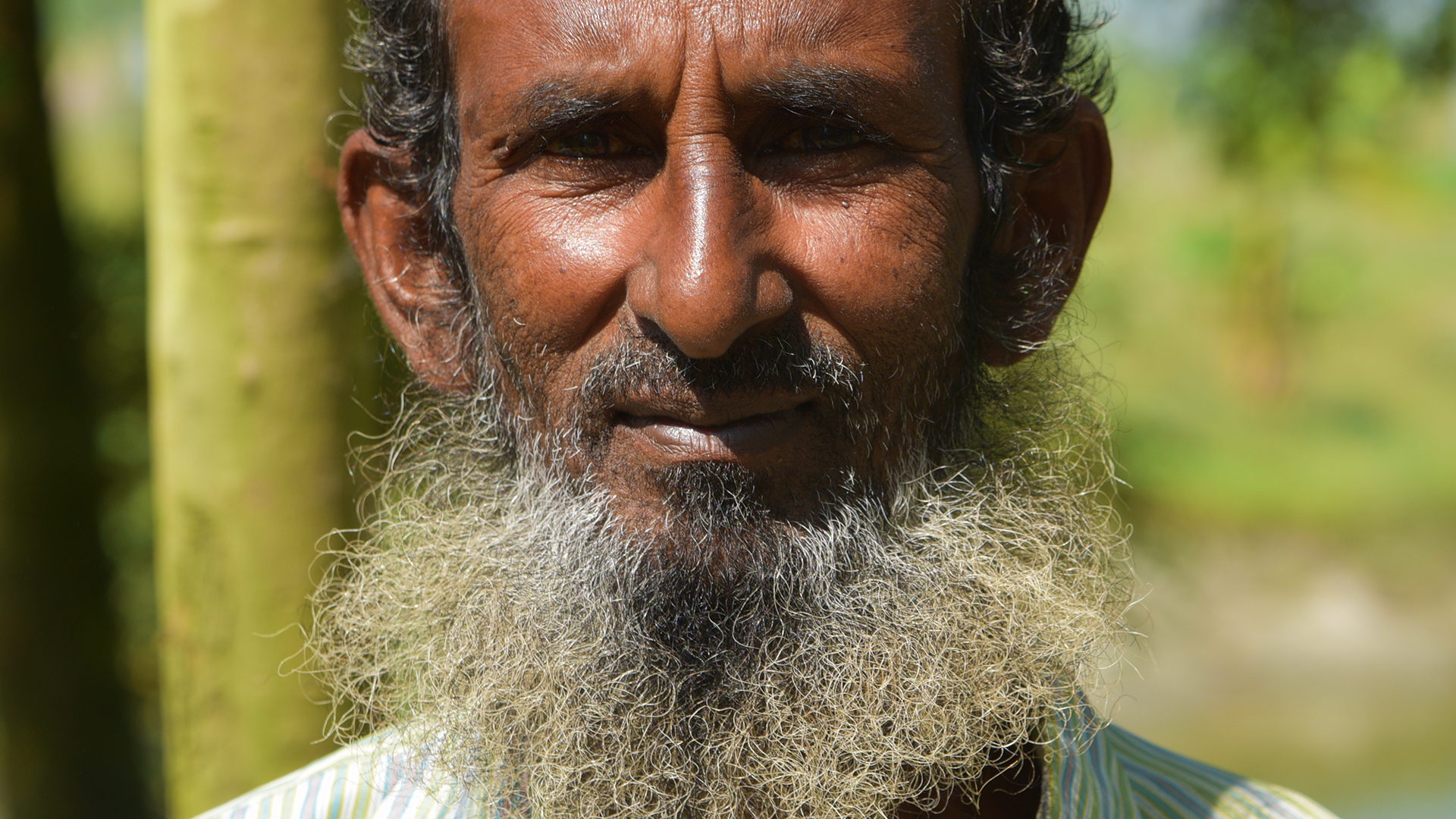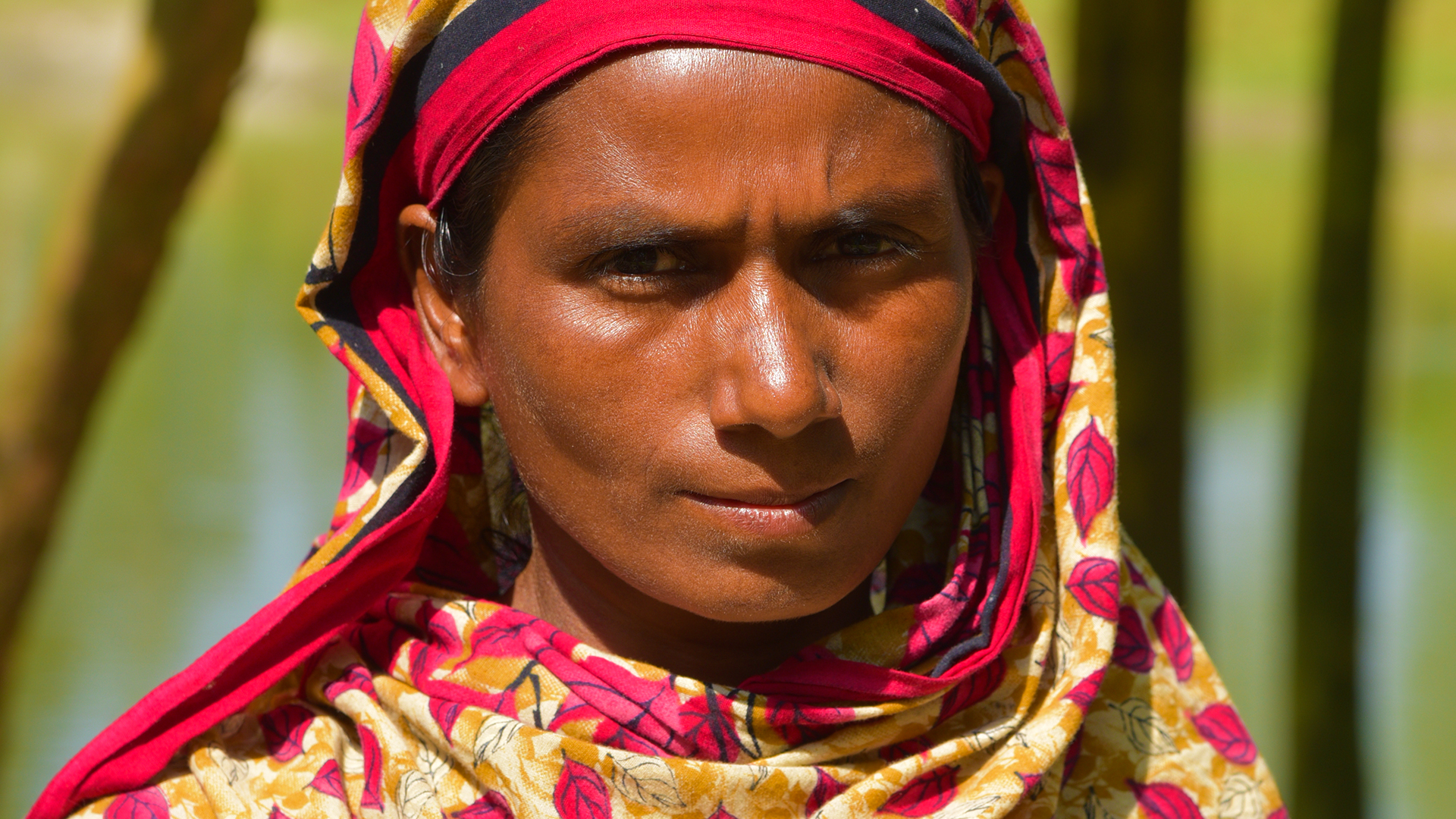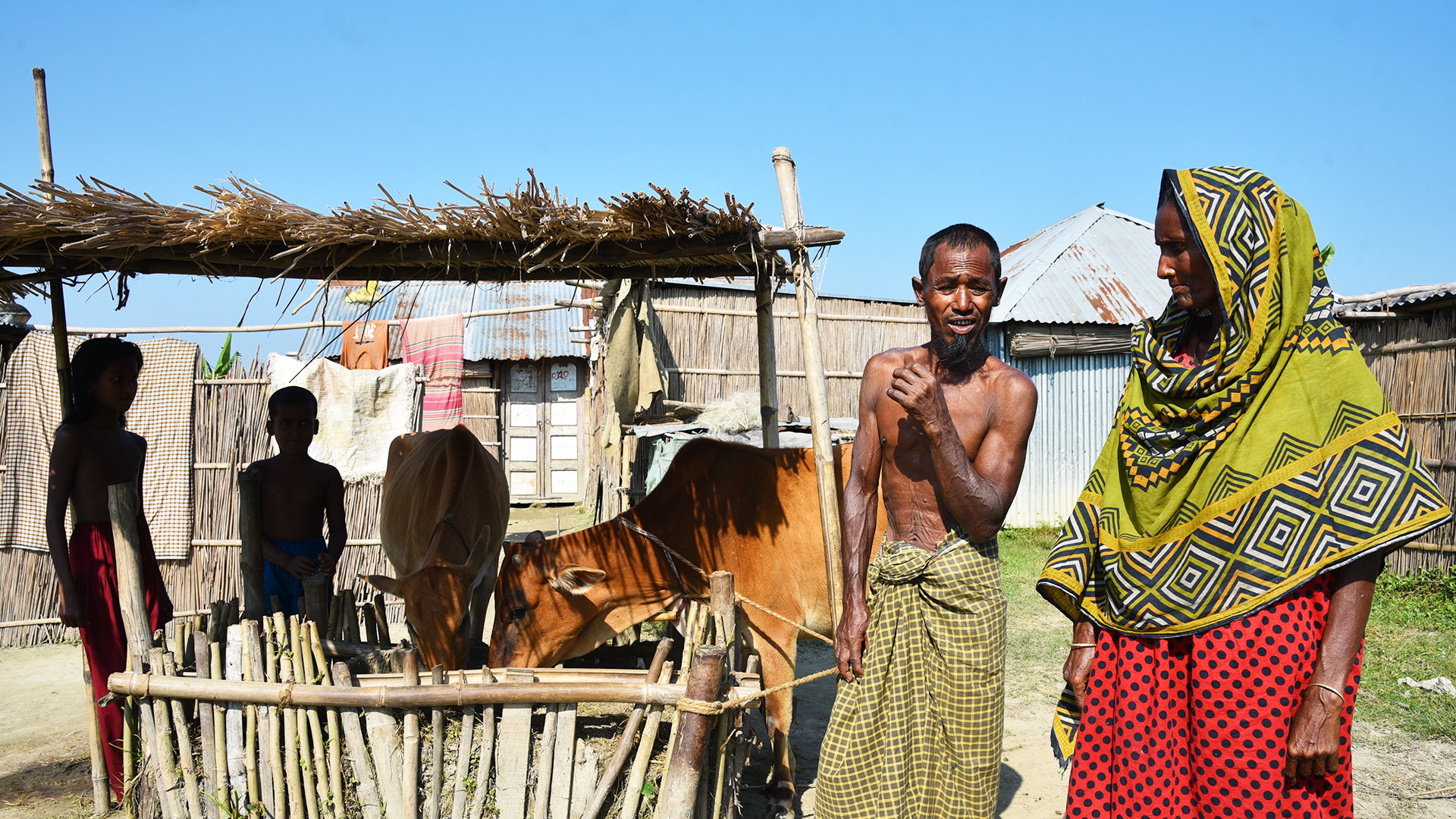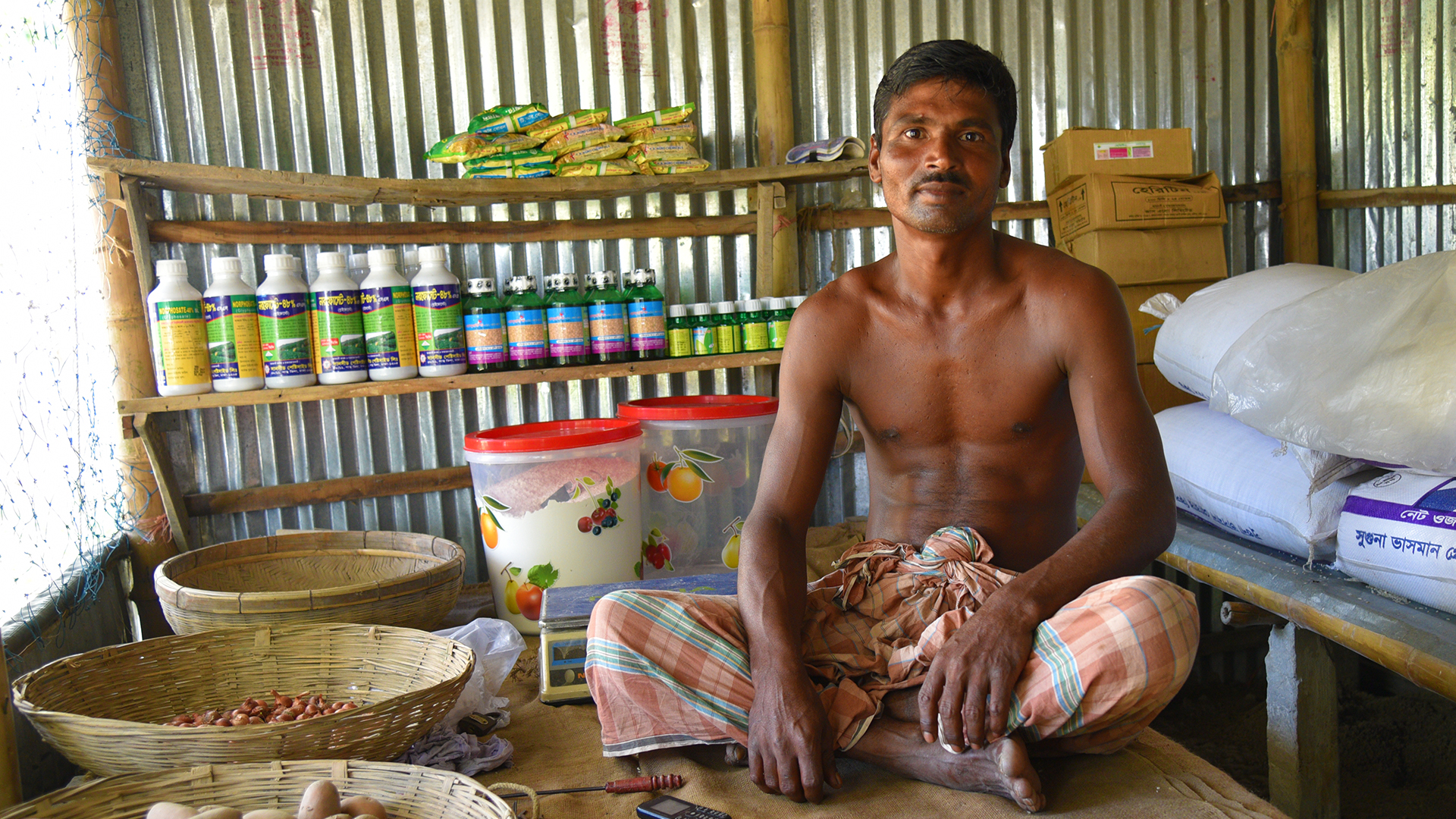-
The four pilot communities in the district of Bogra of GRC’s FbF project in Bangladesh were affected by severe flood events twice in 2017, with a first flood peak in July and the second in August that affected millions of households not only in Bangladesh, but also in India and Nepal. Cash grants were distributed by GRC and BDRCS to 1040 households in the four communities prior to the July flood, so that they could take action to reduce the impact on their families.
-
The population in the four communities assisted by GRC and BDRCS mainly lives of their own land and animal husbandry, or hires themselves as day labourers in the fields of others. Families are very poor and have no savings; many of them are highly indebted. When flooding occurs, it is a priority for many families to bring themselves, their belongings and livestock to safety. Depending on the flood event evacuations can last 20 days or more. Each family received a cash grant of about one monthly salary (5000 Taka), so that they can afford to evacuate themselves, their livestock and their belongings and to purchase food and fodder. First research shows that compared to other communities in the area, in our FbF communities the rate of people who have taken out new loans is about 50% lower. The rate of people who have lost livestock during the flood is about 40% lower.
-
The population in the communities helped by GRC and BDRCS, like Fathema, lives in very simple dwellings. To be safe families must evacuate during the floods. Evacuations can last more than 20 days; a time during which most families have no access to their regular sources of income. Many families struggle to pay for evacuation/transportation of their families and belongings and to afford food for family and feed for animals during this period. Often they have no other choice than to take up high-interest loans, which negatively impact the families’ livelihood for a long time after the flood.
-
In focus group discussions with members of the communities, staff of BDRCS and GRC talk to different community members to find out about the main problems that they face during and after flooding. Once the main humanitarian impact of such extreme weather events on the population has been identified – not only through discussions, but also surveys, studies and historical data; the FbF team will identify those early actions that are most appropriate to mitigate these impacts.
-
Kazla, one of the communities assisted by GRC and BDRCS, is located on an island in the river Jamuna. To have access to many goods and services, the population uses ferries to get to the mainland. In the event of severe flooding, many of the inhabitants must evacuate to the mainland. The prices for the ferries often increase significantly in times of flooding and many families have to take up debts to afford the transport.
-
Anowara, 56 and her husband Amir Uddin, 62, used the cash grant to buy enough food for themselves and their grandchild. "We bought 40 kilos of rice and 20 kilos of grains, that was enough to make it through the hard weeks. We didn't have to take on any debts," says Amir. Anowara could even buy a little goat for the family.
-
Alefa Katun, 40, was able to evacuate her two cows and feed them during the flooding thanks to GRC and BDRCS’ forecast-based support. "Without the help, I would have had to sell these two so they wouldn't starve. But I would only have received a very bad price for them during the flood. But they are two good cows that are healthy and give a lot of milk," she says. A healthy cow that gives a good amount of milk is worth up to an annual salary (60 000 Taka). During flood events pastures are inundated for weeks so the cows don’t have access to their usual feed. Many families lack the funds to buy enough feed for the long periods of inundation and to evacuate their livestock; thus they find themselves forced to sell their livestock before it starves. During flood events prices for good cows like Alina’s fall to six-seven monthly salaries (35 000 Taka). An enormous loss for those families who are forced to sell.
-
The widow Most Tarza, 55, has two children. With GRC’s cash grant she bought food for her family and feed for her cows; she also fixed and raised the mud floors of her house. She says: “My house was damaged by the floods, but only in places that were easy to repair, with some sheets of corrugated metal here and there.”
-
Jobeda Begum, 60 years old, is mother to three sons and one daughter. Using the cash grant of GRC and BDRCS, following the flood warnings she installed a raised shelter for her cows. "My cows got through the flood fine and are in good condition now", she says. “Without the cash support, I would have had to take up loans.” Jobeda was even able to save some of the money and bought food for her family to last them during the duration of the floods in July and August.
-
During the flooding, the inhabitants try everything to save their families, their livestock and their few belongings. Widow Most Hamida has tied her bed to the roof beam to protect it from the flood.
-
Wallina , pictured with her son Sumaya used the cash grant to buy rice for her family, as well as feed for her cattle and fever medicine for her son. "Usually in times of crisis, we have to take up loans at high interest rates to make ends meet; this time it wasn't necessary." Wallina works as a daily worker on the fields of other farmers. During flood events she loses all income as fields are inundated and cannot be worked on.
-
Mustafa , 52, also bought food as well as feed to save his family's five cows. "In floods in the past, I always had to take out a loan often at very bad conditions, sometimes it took me years to pay them back. This time I did not have to do so."
-
Widow Rebekka says: "Usually I work in the fields for plants and crops, and I get 140 Taka a day. That's just enough for dinner. I couldn't work in July at all. The fields were inundated early on and the farmers had no income to pay me. Without income and my own land I cannot even take up loans to get over the period of evacuation. With the money from GRC and BDRCS, I bought food for myself and my son. Unfortunately we lost our four goats, but we saved the rest of the money and were able to buy two small new goats after the floods. But we really had to save every penny."
-
Sanora and her husband Suleyman works as day labourers. They used the cash grant to buy food for themselves and their children and feed for their livestock. They also purchased plastic sheeting so that they and their children Kukuman and Shakil could stay dry during the evacuation. Nevertheless, they had to take out a loan following the floods. “Suleyman found no work for three months after the flood, because nobody could pay”, Sanora says.
-
Nadu, 42, shopkeeper: "Of course, during the flood, I didn't have any customers, since they were evacuated. Thanks to the cash grant, I had some money to transport my family’s most important belongings to safety and buy food for us. Although I had no income for a while, I didn't have to take out a loan this time. Now people are slowly coming back to my shop."

